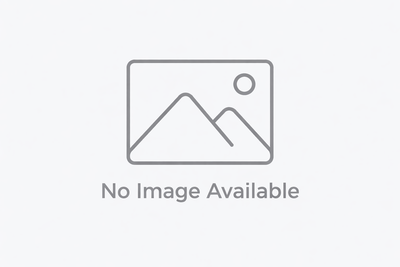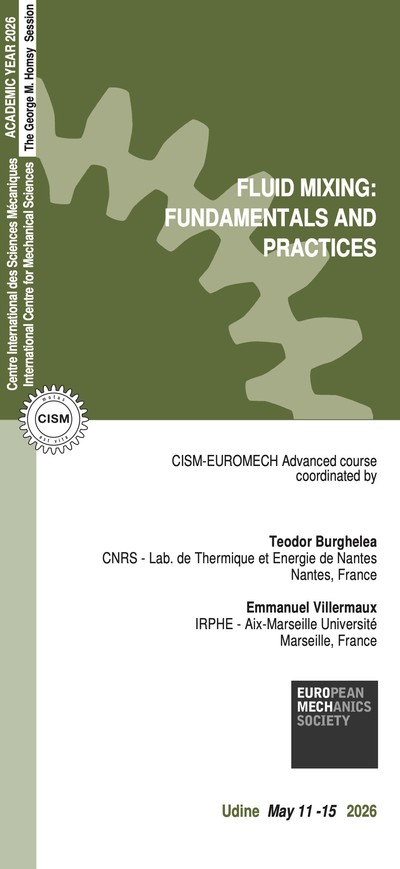3D printing has opened the possibility to create functional end-use parts of a complexity that could not be achieved with traditional manufacturing technologies. It thus represents a promising step towards ways of optimizing and saving materials, reducing costs and environmental impact.
While additive manufacturing is being continually improved, a major thrust in research is devoted to the optimal design of composite and micro-architected materials with unprecedented properties.
This course will present some advanced mathematical tools for modelling both the elastic and inelastic behaviour of solids, and applications related to the engineering technology of additive manufacturing.
In particular, Gamma-convergence rigorously justifies the use of phase field models to approximate quasistatic crack growth in brittle materials. In order to identify significant parameters or cavities to predict the optimal shape of a printed object, topology optimization will be considered.
The mechanical properties of materials and structures obtained by these methods will be analysed, and a particular attention will be devoted to the study of instability phenomena in periodic composites and to the propagation of elastic waves in micro-architected materials.
Effective fracture properties of heterogeneous solids will be studied in view of applying 3D printing techniques to design materials with improved failure properties. Numerical methods used in this context will be also presented.
The course is addressed to master students, PhD students, postdocs and young researchers. It can be of interest also to engineers and professionals as it provides an insight into the tools at the basis of numerical methods largely used in practice.
D. Bucur, G. Buttazzo G. Variational methods in shape optimization problems. Progress in Nonlinear Differential Equations and their Applications, vol. 65. Birkhäuser Boston, 2005.
A. Henrot, M. Pierre.Shape variation and optimization. EMS Tracts in Mathematics, vol. 28. European Mathematical Society (EMS), Zürich, 2018.
G. Dal Maso. An introduction to Γ-convergence. Progress in Nonlinear Differential Equations and Their Applications, vol. 8. Birkhäuser Boston, 1993.
G. Buttazzo, G. Dal Maso. An existence result for a class of shape optimization problems. Arch. Rational Mech. Anal. 122: 183-195, 1993.
B. Bourdin, G.A. Franfort, J-J. Marigo. The variational approach to fracture. Springer, New York, 2008.
M. Ambati, T. Gerasimov, L. De Lorenzis. A review on phase-field models of brittle fracture and a new fast hybrid formulation. Comput. Mech. 55: 383-405, 2015.
C.Y. Yap, C.K. Chua, Z.L. Dong, Z.H. Liu, D.Q. Zhang, L.E. Loh, S.L. Sing. Review of selective laser melting: Materials and applications. Appl. Phys. Rev. 2:041101, 2015.
M.I. Hussein, M.J. Leamy, M. Ruzzene. Dynamics of phononic materials and structures: Historical origins, recent progress, and future outlook. Appl. Mech. Rev. 66:040802, 2014.
M. Gei, A.B. Movchan, D. Bigoni. Band-gap shift and defect-induced annihilation in prestressed elastic structures. Journal of Applied Physics 105:063507, 2009.
L. Morini, M. Gei. Waves in one-dimensional quasicrystalline structures: Dynamical trace mapping, scaling and self-similarity of the spectrum. J. Mech. Phys. Solids 119:83-103, 2018.
S. Xia, L. Ponson. Toughening and asymmetry in peeling of heterogeneous adhesives. Physical Review Letters 108:196101, 2012.
T.M. Grabois, J. Neggers, L. Ponson, F. Hild, Romildo D. Toledo Filho. On the validation of integrated DIC with tapered double cantilever beam tests. Eng. Fract. Mech. 191:311-323, 2018.
M. Vasoya, V. Lazarus, L. Ponson. Bridging micro to macroscale fracture properties in highly heterogeneous brittle solids: weak pinning versus fingering. J. Mech. Phys. Solids 95:755-773, 2016.
L. Blank, H. Garcke, M. H. Farshbaf-Shaker, V. Styles. Relating phase field and sharp interface approaches to structural topology optimization. ESAIM Control Optim. Calc. Var. 20:1025-1058, 2014.
H. Garcke, K.-F. Lam, E. Rocca. Optimal control of treatment time in a diffuse interface model of tumor growth. Appl. Math. Optim. 78:495-544, 2018.
F. Tröltzsch. Optimal control of partial differential equations. Theory, methods and applications. Graduate Studies in Mathematics, vol. 112. American Mathematical Society, Providence, RI, 2010.
5 lectures on: Variational methods in shape optimization.
These methods will be introduced through a complete study of several examples. Roughly speaking, the analysis consists of three main steps: the mathematical modelling, the qualitative analysis of the model (existence and properties of the solution like topological structure, regularity, symmetry, etc.) and the numerical approximation of the solutions.
5 lectures on: Gamma-convergence.
The basic notions of Gamma-convergence will be presented together with applications to shape optimization problems and to the phase-field approach to fracture mechanics.
5 lectures on: Numerical methods for phase-field models and simulation of SLM 3D printing processes.
The course will consist of 4 lectures on phase-field modelling of brittle fracture (basics of the model, basics of the numerical implementation, extensions and applications) and 1 lecture on the modelling and simulation of 3D printing processes (the selective laser melting process).
5 lectures on: Mechanics of periodic structured solids.
Dispersion properties of periodic composites, Floquet-Bloch method, pass band and band gap layout, transmission of waves across finite-size periodic specimens, wave propagation in quasicrystalline-generated periodic rods, design of periodic metamaterials and the concept of negative refraction.
5 lectures on: Fracture mechanics of heterogeneous materials: Towards the rational design of tougher solids.
Homogenizing fracture properties of architected materials requires dedicated techniques that will be presented through pedagogical experiments carried on 3D printed solids. A multi-scale theoretical framework will be introduced which opens new perspectives for the rational design of materials with improved failure properties.
5 lectures on: Optimal control and topology optimization in engineering and biology.
Optimal control and shape optimization in infinite-dimensional Banach spaces will be introduced together with applications to bio-medical problems (e.g. models of tumor growth) and engineering problems (e.g. topological optimization in additive manufacturing). In both cases the phase-field method will be used in the modeling approach.
This course benefits partially from a financial support from the University of Udine. The registration fee is:
- Participation in presence, 350.00 Euro + VAT*
This fee includes a complimentary bag, four fixed menu buffet lunches (on Friday upon request), hot beverages, download- able lecture notes.
- Participation online, 150.00 Euro + VAT*
This fee includes downloadable lecture notes.
Applicants must apply at least one month week before the beginning of the course. Application forms should be sent on-line. A message of confirmation will be sent to accepted participants. Applicants requiring assistance with the registration should contact the secretariat at the following email address:cism@cism.it.
Applicants may cancel their course registration and receive a full refund by notifying CISM Secretariat in writing (by email to cism@cism.it) no later than two weeks prior to the start of the course.
Cancellation requests received during the two weeks prior to the start of the course will be charged a 50.00 Euro handling fee. Incorrect payments are also subject to a 50.00 Euro handling fee.
A limited number of participants from universities and research centres who are not supported by their own institutions can be offered lodging and/or board, if available, in a reasonably priced hotel or student guest house.
Requests should be sent to CISM Secretariat by February 12, 2021 along with the applicant's curriculum and a letter of recommendation by the head of the department or a supervisor confirming that the institute cannot provide funding. Preference will be given to applicants from countries that sponsor CISM.
Information about travel and accommodation is available on the web site www.cism.it, or can be mailed upon request.
* where applicable (bank charges are not included), Italian VAT is 22%.





